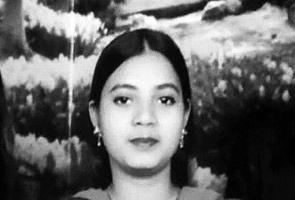 | « Back to article | Print this article |
 The Gujarat high court on Friday pulled up the state government saying some of its high-ranking police officers were "protecting, shielding and siding with" the policemen accused in the 2004 Ishrat Jahan encounter case.
The Gujarat high court on Friday pulled up the state government saying some of its high-ranking police officers were "protecting, shielding and siding with" the policemen accused in the 2004 Ishrat Jahan encounter case.
"It has come on record in the present investigation that some of the higher state police officers are protecting, shielding and siding with the police officers who are accused in this case," observed the division bench of Justices Jayant Patel and Abhilashakumari today during the hearing of CBI plea to grant services of Indian Police Service officer Satish Verma further till June 30.
The court made this comment after going through the progress report of the investigation in the case carried out by the CBI and which was submitted, in a sealed cover to the court on Thursday. The bench also questioned the intention of the state government for its objections to spare Verma's services as required by the CBI.
"We fail to understand why the state is opposing the request made by the CBI to spare the services of its IPS officer. Why is that the state government is objecting and obstructing in this? State government should strive to find out whoever the real culprits are and ensure that they get booked at the earliest," the bench observed.
After observing that further truth needs to be unearthed, the court directed the investigative agency to further submit its progress report by June 13. The next hearing in the case has been scheduled on June 14, till which time Verma's services for the CBI investigation into this case has been extended.
On June 15, 2004, Isharat Jahan along with Javed Shaikh alias Pranesh Pillai, Amjadali Akbarali Rana and Zeeshan Johar were killed in an encounter on the outskirts of Ahmedabad.
At that time the Gujarat police had claimed that all the four were terrorists, who entered the city to kill Gujarat Chief Minister Narendra Modi.
The CBI, while requesting the services of Verma be extended till June 30, also revealed that during its probe, apart from accused officer and Additonal Director General of Police (crime) P P Pande, who is still absconding, name of another Gujarat IPS officer has also came up as an accused.
"Along with the absconding IPS officer, another name has appeared in our investigation and we need Verma's assistance in tracing and booking them," said CBI lawyer Ejaz Khan.
As efforts of the CBI in taking Pande into the custody has failed, on May 2 special CBI court had issued the arrest warrant against him. Khan also expressed concerns about the pressure and obstructions created against the agency in this probe.
"If you perused the report and case diaries of our investigation, it will reveal that there are certain kind of obstructions and pressures we are facing from the state government and Verma's services are vital, as clues he has given have resulted in breakthroughs," Khan said.
"Conspiracy (for the encounter) was hatched in Gujarat and it has been established in our investigation so far...And now, we have to establish the identity of two of the deceased for which we need to take Verma to the northern parts of the country," he said.
The state government has opposed the extension of Verma's services to the CBI on the grounds that state can't spare the services of an IPS officer for longer period as state also need his services.
"Suppose accused is not available for three to five years. Then should Verma's services continue till that time," argued Government Pleader Prakash Jani.
However, rejecting this argument, the bench said, "We do appreciate the concerns of the state government, but looking at the more important aspect of confidentiality and secrecy of the investigation, we find it proper to extend Verma's services till June 14, 2013."
Image: Ishrat Jahan